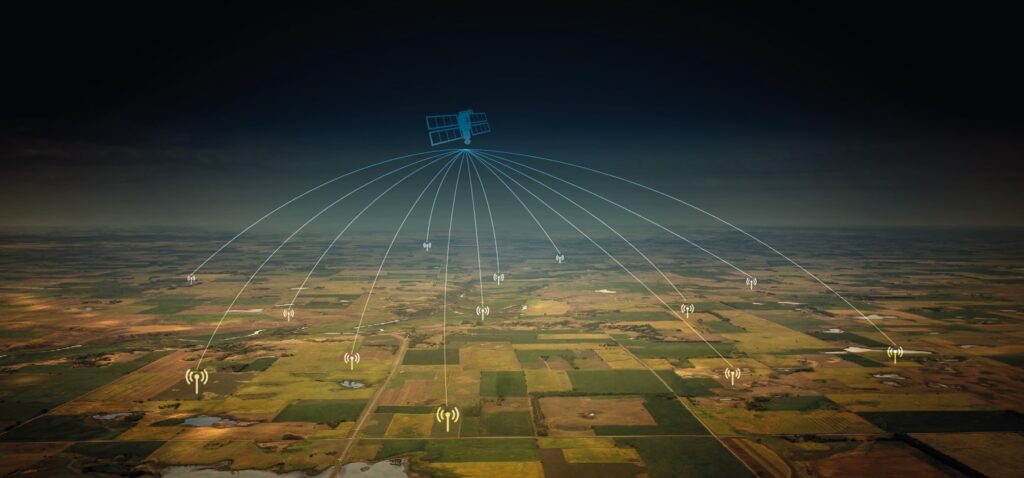The future of agriculture is data-driven, efficient, and sustainable—and Satellite IoT is the key enabler of this transformation. Traditional terrestrial networks often fail to cover vast, remote agricultural regions. Satellite IoT bridges this gap, delivering real-time, global connectivity directly to farms, no matter how isolated they are.

Why Satellite IoT in Agriculture?
Global Coverage Satellite IoT ensures seamless connectivity for agricultural operations across continents, mountains, deserts, and oceans. From remote ranches to sprawling crop fields, data is transmitted reliably, without the need for expensive ground infrastructure.
Precision Agriculture Leverage low-power IoT sensors connected via satellite to monitor soil moisture, crop health, weather patterns, and pest activity. Real-time insights allow farmers to make data-backed decisions, optimizing water usage, fertilizers, and yields.
Livestock Monitoring Track livestock movements, health conditions, and locations with GPS-enabled IoT devices. Satellite IoT ensures continuous tracking, reducing losses, and enhancing animal welfare—even in areas with no cellular coverage.
Supply Chain & Asset Management Monitor agricultural machinery, storage conditions, and product transportation in real-time. IoT-connected equipment helps minimize downtime, prevent theft, and ensure the freshness of perishable goods throughout the supply chain.
Sustainability & Resource Optimization With real-time environmental data, farmers can reduce resource consumption—water, fertilizers, and energy—minimizing their environmental footprint while maximizing profitability.
Key Benefits
✅ 100% Global Reach
✅ Low Power, Long-Lasting Devices
✅ Affordable, Scalable Solutions
✅ Seamless Integration with Existing Systems
✅ Reliable Data Transmission, Anywhere
IoT sensor types for Agriculture
Enhancing precision agriculture with globally connected data solutions. Explore the powerful use cases of Satellite IoT transforming modern farming:
Soil Moisture Monitoring
Optimize irrigation schedules and conserve water resources using satellite-connected soil moisture sensors.
Temperature Sensors
Monitor soil and air temperatures in remote fields to prevent crop stress, frost damage, and optimize planting cycles.
Humidity Sensors
Track humidity levels to forecast conditions, manage disease risks, and fine-tune irrigation strategies.
NPK Monitoring
Measure nitrogen, phosphorus, and potassium levels to ensure optimal nutrient balance and maximize yields.
Soil pH Monitoring
Continuously track soil pH to support proper crop selection, fertilization, and soil health management.
Nitrogen Runoff
Detect nitrogen runoff in real-time to reduce fertilizer waste and minimize environmental impact on waterways.
Carbon Sequestration
Measure carbon storage in soil and vegetation to promote sustainable farming practices and carbon credit validation.
Leaf Wetness Sensors
Prevent fungal diseases by monitoring leaf wetness and ensuring precise application of treatments.
Light Sensors (PAR)
Optimize crop photosynthesis and growth using Photosynthetically Active Radiation sensors.
NDVI Monitoring
Assess vegetation health and stress levels using NDVI data for early detection of growth issues.
CO2 Monitoring
Track CO2 levels to understand plant respiration, greenhouse gas emissions, and sustainability performance.
Pest & Disease
Utilize IoT-enabled traps and sensors to detect early signs of pests and diseases, reducing pesticide use and crop losses.